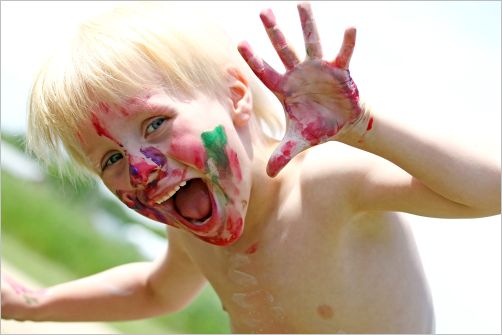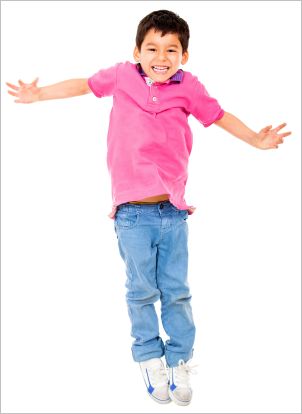ADHD in Toddlers
ADHD in toddlers has a way of making toddler parents nearly frantic. A ‘regular’ toddler, if there is such a thing, is enough of a wildfire. Add a little dose of ADHD in there, and your little guy or girl may be bouncing up the walls, keeping you constantly on our toes, and unable to concentrate on any little tasks you may choose to give him, no matter how fun they seem to you.
Diagnosing ADHD in Toddlers

The three tell-tale signs of ADHD in toddlers are:
• Inattention
• Hyperactivity
• Impulsivity
Just because you have an impulsive little one who is hyperactive and can’t pay attention for two minutes doesn’t mean you should diagnose your child with ADHD, though. Toddlers are, by nature, impulsive; they also have a tendency toward hyperactivity and are generally no good at paying attention. What sets ADHD kids apart is not that they exhibit these three traits, but that they have them in a more extreme range.
If a diagnosis is important to you, you’ll want to talk to your child’s pediatrician about his or her symptoms. Since your child isn’t trying to sit through long schooldays or cope with boring assignments yet, though, diagnosis of ADHD is not urgent and completely optional. The one benefit it does give is in helping you to discover ways to treat or deal with the problem before it really becomes a problem.
Treating ADHD in Toddlers

ADHD should never be treated with medicines; your child’s brain is growing and developing at a tremendous rate, and sedative-type medicines such as those used by older children could have very negative consequences. Instead, you want to look at what diet and lifestyle changes you can make that calms our child’s ADHD symptoms. Think of this period—before the stress of school and ‘real life’ begins—to be your experiment ground, where you and your child figure out what he needs to be successful in the future.
One substance that triggers ADHD behavior is artificial colorings. Try cutting artificial colors completely out of your child’s diet for a few weeks, and see what kind of response you get. That means no fruit loops, no colored sodas, no colored candy. You’ll need to read the ingredient list on foods before you give them to your child, as artificial colors crop up in lots of children’s food; but you’ll discover that the foods which don’t have them are also generally much healthier anyway.
Artificial flavors may be another trigger for your child, so you may want to experiment with a ‘whole foods’ diet for a while and try to minimalize sugar as well. A diet of natural, unprocessed foods that is high in protein and vitamins is generally considered ideal for ADHD-prone children. Try giving your child fish oil, too—some parents swear by it, and it can’t hurt him.
Another lifestyle change you can make to help your toddler manage his ADHD symptoms is to stick to routines—make a daily schedule and do what you need to keep it consistent. You’ll notice your child is much better able to handle life when he knows what to expect beforehand; and changes in the schedule will upset him more than you’d expect.
Coping with your toddler’s ADHD may be a learning curve, but the two of you will get this down!
Click here to return from ADHD in Toddlers to Toddler Health
New! Comments
Have your say about what you just read! Leave me a comment in the box below.